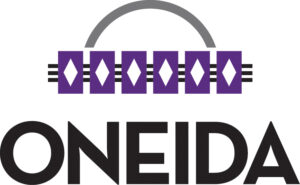
What does it mean to feel seen on a college campus? For Savannah Schuyler, this question sparked an in-depth journalism project, where she researched, interviewed and learned from the indigenous people surrounding her. More than that, however, this question ignited her ambition for her future career.
Schuyler, a junior in the School of Journalism and Mass Communication (SJMC), dreams of writing for her tribe’s newsroom. As a member of the Oneida tribe in the Turtle clan, Schuyler came to Madison with the intention of learning more about her community, and what she could do to lift their voices.
“Coming here, knowing that we were on the Ho-Chunk land was important to me because I came here knowing that I wanted to learn more about my culture,” said Schuyler.
And the first step Schuyler took to do that was turn to the people around her. Every Journalism 202 student is tasked with putting together a multimedia project that dives deep into a topic from a unique, fresh perspective. Schuyler chose to learn and write about the Indigenous people at UW-Madison, and their push for change.
“The resources, the people, the community, and essentially the education that I get here is far from what I would’ve gotten otherwise,” said Schuyler, “I have probably learned the most from the indigenous students and faculty that surround me. They’ve been incredible resources for anything and everything.”
While Schuyler is working toward a degree in Journalism, she is also majoring in Communication Arts and obtaining Certificates in American Indian & Indigenous Studies and Gender & Women’s Studies. Her goal is to use this education to be a better journalist for Indigenous people.
One of the many lessons Schuyler learned through her courses here is the effect journalists have on the perception of events and groups of people. For Indigenous people, this means that many times the stories written about them are misfocused and perpetuate harmful stereotypes.
“In the past it’s usually people covering indigenous topics and they do not know what they are covering. They’re not concerned with the complexities or the context that goes into why these stories are happening,” said Schuyler.

But these misguided stories do not discourage Schuyler, instead they inspire her to be the journalist her people need. A journalist who is properly informed, respectful and writes with the intention of informing others and helping them become better. For her, this means returning to her reservation and working toward a career at Kalihwisaks, the official publication of the Oneida Nation.
“Considering that most tribes and reservations do not have a tribal newspaper, I find it incredibly important and impactful that I have one at home that I can contribute to,” said Schuyler, “With a lack of indigenous journalists, I would love to be that spokesperson who can speak for my community in a way that others maybe cannot.”
As a member of the Oneida Nation of Wisconsin, this opportunity for Schuyler connects with her on many levels. It’s clear her passion for uplifting the voices of her community shines bright, and her dream to better Indigenous journalism is one of a kind.